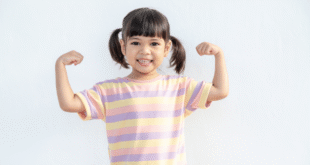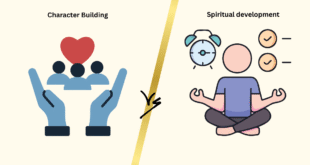Holistic parenting is a mindful and integrated approach to raising children that takes into account the interconnectedness of various aspects of a child’s well-being. These include physical, emotional, mental, and spiritual dimensions. Rather than focusing solely on immediate childcare needs, holistic parenting addresses a child’s development in a more comprehensive manner.
At its core, holistic parenting seeks to create a nurturing environment that supports a child’s growth on multiple levels. This approach considers not only the child’s physical health but also their emotional intelligence, cognitive development, social skills, and connection to nature.
The goal is to raise well-rounded individuals who are not only physically healthy but also emotionally resilient, mentally agile, and spiritually aware.
What is Holistic Parenting?
Holistic parenting encourages parents to view their children as unique individuals with distinct needs and preferences. This approach emphasizes understanding a child’s temperament, interests, and innate abilities, allowing parents to adapt their strategies to foster the child’s growth in all aspects.
By encouraging open communication and active listening between parents and children, holistic parenting fosters a strong parent-child bond built on trust and empathy.
Incorporating practices from alternative therapies, holistic parenting encompasses nutrition, mindfulness, education, natural remedies, and emotional well-being. It emphasizes the importance of a balanced lifestyle, including organic nutrition, mindfulness exercises, creative expression, and exposure to nature.
The Five Key Domains of Holistic Parenting
Holistic parenting is about nurturing a child’s development in five key areas:
- Physical Development
- Intellectual Development
- Emotional Development
- Social Development
- Spiritual Development
Let’s explore each of these domains in more detail.
1. Physical Development
Physical development begins immediately after birth and continues throughout childhood, adolescence, and into adulthood. This includes the development of both gross motor skills and fine motor skills.
- Gross Motor Skills: These are physical skills that require full-body movement, such as sitting, standing, walking, running, and jumping. Gross motor skills are essential for everyday functions and the development of self-care skills, such as dressing and riding a bicycle.
- Fine Motor Skills: These involve smaller muscle movements, like holding a pencil or using scissors. Fine motor skills are crucial for tasks like writing, eating, and using a computer.
Parents should encourage physical activities to help children develop their motor skills, such as walking, running, and playing sports.
2. Intellectual Development
Intellectual development refers to a child’s ability to think, reason, and understand the world. It involves cognitive processes like memory, problem-solving, and critical thinking. The intellectual domain can be nurtured by engaging the child in activities like playing, experimenting, reading, and engaging in discussions.
A crucial part of this development is language and communication skills. Cognitive development enables children to organize their thoughts, understand concepts, and express ideas.
3. Emotional Development
Emotional development is about helping children understand and manage their emotions. Children may not always have the vocabulary to express their feelings, so they might show emotions like anger, happiness, or sadness through actions such as crying, shouting, or laughing.
Positive emotions, like happiness, should be encouraged, while negative emotions such as anger or anxiety need to be acknowledged and managed effectively. Parents should help children recognize their feelings and learn to cope with them.
4. Social Development
Social development involves a child’s ability to interact with others in various settings. It helps children develop essential communication skills, build relationships, and manage conflicts. Social development can be encouraged through activities like playdates, participation in group activities, and interactions with peers and adults.
Key social skills such as manners, respecting personal space, and working in teams should be fostered early on.
Barriers like language differences or social isolation can affect a child’s ability to develop strong social skills, so parents should ensure their child has opportunities to interact in diverse settings.
5. Spiritual Development
Spiritual development refers to nurturing a child’s inner sense of purpose, beliefs, and values. This domain is particularly important in religious contexts, where children are taught about God, the universe, and the purpose of life.
In Islamic perspective, spiritual development involves instilling Islamic beliefs and practices in children, helping them understand their purpose of creation and aim of life. Parents should guide children in aligning their thoughts and actions with their beliefs.
Why Holistic Parenting is Important
Holistic parenting helps create a well-rounded, balanced individual who is capable of thriving in all areas of life. It supports children’s development in physical, emotional, mental, and spiritual domains, ensuring that each aspect of their growth is nurtured.
By understanding the interconnectedness of these domains, parents can create an environment that promotes health, empathy, resilience, and intelligence in their children. Holistic parenting doesn’t just focus on managing behavior but seeks to support a child’s overall well-being, making them better prepared for the challenges of life.
Conclusion
Holistic parenting is a comprehensive approach that recognizes the interconnected nature of child development. By focusing on physical, emotional, mental, social, and spiritual well-being, parents can create an environment that fosters healthy, happy, and well-rounded individuals.
By incorporating practices from mindfulness, natural remedies, and alternative therapies, holistic parenting provides a balanced framework for nurturing children in today’s world. If implemented thoughtfully, it can have a profound and lasting impact on a child’s growth, development, and overall well-being.
 Edutarbiyah English Blog of Parenting and Tarbiyah
Edutarbiyah English Blog of Parenting and Tarbiyah



